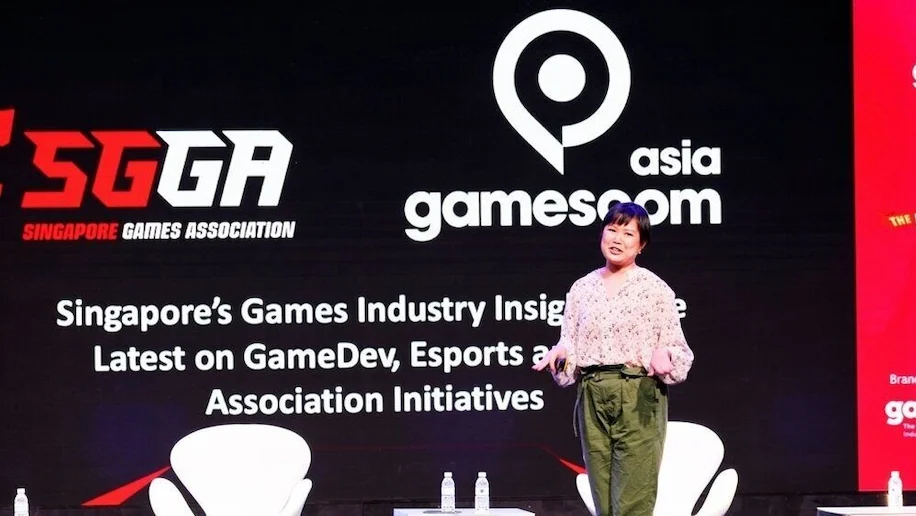
By Gina Peh
Covering around 1,650 female respondents in six Southeast Asian countries, the report found that women’s participation in tech across the region was higher than the global average—including mature Western markets like the US and UK. While these numbers are highly encouraging, there’s still room for improvement.
Imagine building a world full of hyperactive bunnies and armour-clad goldfish or perhaps life as a swashbuckling cat with a dangerous rescue mission afoot. With homegrown indie games like BattleSky Brigade and Cat Quest, our imagination is free to run wild in these captivating virtual worlds.
With Singapore leading the way as one of Asia’s most vibrant digital innovation hubs, it’s no surprise that gaming is quickly finding its footing across the Republic. To date, Singapore is home to more than 130 active games companies, institutions and individuals as well around 50 active esports companies. In yet another step forward, the Singapore Games Association (SGGA) was established in August 2020 to develop and foster the local games and esports ecosystem.
Supported by the Infocomm Media Development Authority (IMDA) and its partners, SGGA aims to transform Singapore into a premier games and esports hub as well as position it as the country of choice for international events, workshops and tournaments.
In an enlightening panel at the Singapore Games Market Bootcamp last 30 November 2020, SGGA chairperson Ms Gwen Guo and panellists Mr Shawn Toh, CEO of BattleBrew Productions and Mr Desmond Wong, CEO of The Gentlebros shared an insider’s view on the state of games in Singapore and beyond.

Indies making their mark
When Mr Wong first left gaming giant Koei Tecmo to venture out on his own, he recalled how he “couldn’t really sleep the whole night.” After all, leaving a large game conglomerate to start your own business can be nerve-wracking, to say the least.
Now suddenly it’s like the future is really in our hands. But it was also super exciting because we finally get to make the games we want to make.
Mr Desmond Wong
CEO, The Gentlebros
Fellow indie games start-up founder Mr Toh certainly attested to the exhilaration felt by Mr Wong. After years of working in successful game companies like Gumi Asia and Nubee, Mr Toh took a leap of faith and started BattleBrew productions. “I think for some of us, there was a crossroads that we were at,” he said. “Although we were venturing into something super risky, we wanted creative control of the games that we created and the vision that we had.”
With the country’s advanced digital infrastructure, easy access to tech titans like Apple and Google and government support from IMDA and Spring Singapore (now Enterprise Singapore), both panellists acknowledged that Singapore was an ideal place to start building their own gaming empires. “There were both mentors and inspiration to draw from,” Mr Toh said. Mr Wong agreed, noting that the proximity to veteran game developers helped build close relations and solidify their footing in the industry.
Freedom is responsibility
As liberating as establishing your company may seem, it’s not all rainbows and butterflies when you’re starting out on your own. “Freedom is responsibility,” emphasised Mr Toh. Although indies may have greater ownership of the games that they create, they’re also wholly responsible for all the day-to-day tasks needed to run the company—from HR, to managing finances, figuring out the company structure and even clearing the trash.
Nonetheless, both developers recognised that the tradeoff was necessary, even “enriching”, as Mr Toh quipped. “Obviously, you don’t get the security that you might have with a regular job. But I think that also contributes to the excitement, because you really do feel like you get to control your fate and make the products that really drive you as a creator,” added Mr Wong.
What it takes to thrive
With the surging popularity of mobile and video games, both panellists are confident that Singapore’s games and esports ecosystem has great potential to thrive.
What does this mean for local talents in this space? As remote working continues to be the norm, Mr Toh professed that everyone in BattleBrew Productions is adjusting to “taking more effort and steps to over-communicate, rather than self-censor.” The transition to online communication, rather than bouncing ideas off one another face-to-face, was the biggest change he saw in his company.
For homegrown companies to succeed in an increasingly globalised market, Mr Wong shared his belief that Singaporean game developers needed to think beyond the country’s borders. “There should be a focus on the international market,” he noted. At the same time, locals should also be made more aware of the talents that already exist within the Republic. “It was a challenge letting people here know that Cat Quest is actually made here.”
With initiatives like the Singapore Games Association and events like the Singapore Games Market Bootcamp—as well as Gamescom Asia, which is set to return in October 2021—there’s only clear skies ahead for the local games industry.


.webp)